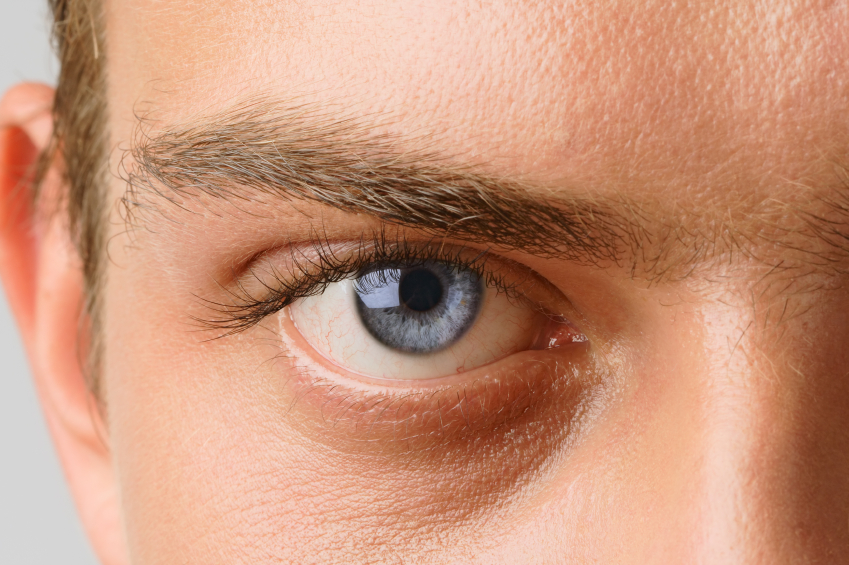Everyday habits that may be damaging your eyes
12/16/2018 / By Ellaine Castillo

The eyes are not just the windows to your soul, they are also your windows to the outside world. Without these organs, you wouldn’t be able to perceive visual cues such as color, shape, and size, which could greatly affect the quality of your life. Unfortunately, lots of people don’t give their eyes the same amount of care as they do with the other parts of the body. This could increase the risk of different eye conditions like blurred vision, cataracts, or blindness.
There are many habits that can cause eye problems and some people might not even know that these actions are harmful. To increase your awareness of how to take proper care of your eyes, here are some examples of habits that can damage your visual organs:
- Swimming without goggles — Goggles are a necessity whenever you go swimming, regardless of whether you’re a professional or if you’re just doing it for fun. Water provides an environment that is conducive for the growth of microorganisms such as acanthamoeba that can infect your eyes. People who wear contact lenses are even more vulnerable to these organisms since they can get trapped between the surface of your eyes and the lens. Additionally, if you’re swimming in a pool with chlorine then you have to be more careful since this chemical strips away the film that protects your eyes, which increases the exposure to dirt and microorganisms.
- Using out-of-date eye makeup — Makeup can be a bit pricey but the potential damage they can cause to your eyes is not worth the money you’ll save when you continue using old products. Generally, liquid liners and mascara should only be used for three months then it’s time to say goodbye since bacteria might have already accumulated inside the packaging. You can never be too careful, so you should also sharpen your eye pencils regularly to prevent bacterial transfer.
- Not getting your eyes checked — If you don’t get your eyes checked regularly, then you might not know if there’s a problem with them until it’s too late. Eye doctors recommend getting a comprehensive eye test every two years. However, people who are below 17 years old or are above 70 years old should get their eyes checked every year, along with those who suffer from eye problems.
- Staring at screens — Your mobile devices, computer screens, and televisions are slowly damaging your eyes with the blue light that they emit. This form of light is absorbed by cells in the retina, where they trigger the release of toxic chemicals which kill light receptors that are necessary for vision. (Related: Screen time is hard on your eyes: Here’s how to protect them.)
- Smoking — If you need one more reason to quit smoking then consider its effects on your eyes. Studies have shown that smokers have a higher risk of getting cataracts and age-related macular degeneration, which can lead to blindness.
- Forgetting to wear sunglasses — Sunglasses are not just fashion accessories since they also offer protection against harmful ultraviolet (UV) rays from the sun. Even if it’s not that bright and sunny outside, you should still put on your sunglasses since 80 percent of UV rays can penetrate through the clouds. When buying sunglasses, don’t just look at the tint of the lenses since this isn’t an indicator of its protective ability. In fact, dark lenses might even increase UV light exposure.
- Leaving your fan on — As you sleep, your fan can blow dust or pollen towards your eyes. This can increase the risk of irritation and dry eyes, especially if you’re wearing contact lenses. You can easily avoid this by thoroughly cleaning your room, setting your fan to turn off once you’ve fallen asleep, or by wearing a sleep mask.
- Overusing eye drops — Instead of relieving the redness of your eyes, applying too much eye drops will even worsen your condition. This is especially true for eye drops that contain preservatives so if you’re using this, you should limit your use to at most four times per day.
Find more tips on how to properly take care of your eyes at Health.news.
Sources include:
Submit a correction >>
Tagged Under:
artificial blue light, bacterial infection, blindness, cataracts, chlorine, eye drops, eye health, eyes, eyesight, macular degeneration, Makeup, screens, sunglasses, Swimming, vision health, vision impairment
This article may contain statements that reflect the opinion of the author






















